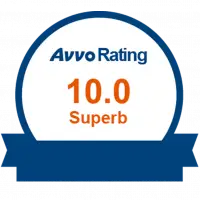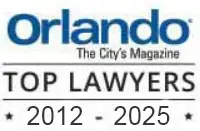Stacked vs. Unstacked Insurance
Understanding Florida's Insurance Laws





















The Difference Between Stacked v. Unstacked Car Insurance
What is the deal with stacked car insurance? Have you recently purchased a car and wondered if you should invest in stacking insurance? Were you asked to sign a waiver of stacking insurance? Do you know what you might be giving up?
Many Florida drivers do not understand the importance of “stacked” auto coverage or know the difference between stacking vs. non-stacking insurance. Similarly, most people do not realize how important stacking insurance can be until AFTER they were involved in a car accident and it is too late.
TK Law is here to help you navigate this challenging time. Here’s what you need to know about stacking vs. non-stacking insurance in Florida.

Understanding Florida’s insurance laws
Before we get into stacking vs. non-stacking insurance, you need to understand the two types of auto insurance coverage all Florida drivers must have:
- Personal Injury Protection Insurance (PIP), which covers up to $10,000 in medical bills and lost income, no matter who caused the accident;
- Property Damage Liability Insurance (PDL), which provides up to $10,000 for damage to someone else’s property.
When you buy a new vehicle, or get a new insurance policy, you also have the option to purchase Uninsured Motorist (UM) coverage. This coverage protects you if the at-fault driver can’t be found (such as in a hit-and-run) or if the other driver has insufficient injury liability insurance.
When you hear about stacked insurance, it is this UM coverage that is being discussed.
What is stacking vs. unstacking insurance?
Stacking means you may elect to combine the UM coverage you have on each vehicle you own, as a way to increase the payment limits of your insurance. Stacking insurance gives you much-needed protection if you are injured in an automobile accident and the at-fault driver has little or no insurance. This increases the total payout you can receive and provides you with much needed protection if you or your family members are seriously injured in an automobile accident.
Stacked insurance also protects family members that live with you, including your spouse and children. And since stacked insurance is tied to the insured person, not to the insured vehicle, you can receive its benefits even if you are operating a rental vehicle or are a passenger in someone else’s car.
Unstacked insurance, on the other hand, does not allow you to combine coverage. No matter the circumstances of your accident, your payout will never exceed the maximum amount listed in your policy.
Examples of stacking insurance in Florida
There are two strategies you can use to stack insurance in Florida:
- Vertical stacking, or stacking within a single policy.
Let’s say you have two cars, both on a single UM policy with limits of $50,000 per person and $150,000 per accident.
If you’re in an accident with an underinsured or uninsured motorist, your available UM limits will be stacked together. You now have coverage of up to $100,000 per person and $300,000 per accident, which you can use towards any accident-related expenses.
- Horizontal stacking, or stacking across policies.
Imagine you have a truck insured for $200,000 per person and $300,000 per accident. Your partner has a car under a separate policy which provides $100,000 per person and $300,000 per accident.
If you or your partner is in an accident in either vehicle, the stacked coverage limit would increase to $300,000 per person and up to $600,000 per accident.
Advantages of stacking insurance
As you can see in the above examples, having stacked insurance is an incredible benefit when you are involved in an accident. Your UM policy will cover medical expenses, loss of current and future income, and pain and suffering (these costs can quickly climb into the tens and even hundreds of thousands of dollars after an automobile crash).
Plus, a stacked insurance policy covers you and your family in any vehicle, even on a motorcycle. Statistics show that one in every four Florida drivers is uninsured beyond the mandatory minimums which is the 2nd highest rate in the country. According to the National Highway Traffic Safety Administration, Orlando consistently ranks in the top 10 cities for car crashes in the State of Florida. Over the last five years, Orange County, Volusia County, and Polk County are all in the top 10 counties for car crash fatalities per year. In 2020, 45% of motor vehicle collisions had 2 or 3 occupants in each vehicle.
With so many uninsured motorists on the road, stacking insurance is the best way to ensure you and your loved ones are financially protected.
Advantages of non-stacking insurance
The main advantage of non-stacking insurance is a lower monthly premium. You pay less for this kind of coverage, because you have less coverage if you are one of the thousands of Americans involved in an automobile accident each year.
What does Florida law say about stacking insurance?
The rules around stacking vs. non-stacking insurance are different in every state. In Florida, the choice is completely yours. UM policies typically automatically stack. However, when you purchase your coverage, you will be given the option to select and sign a waiver of stacking coverage.
You should also keep in mind that Florida doesn’t legally require drivers to purchase bodily injury insurance (BIL) to cover personal injury damages. If you do not have UM policy coverage and you are involved in an accident with an uninsured or underinsured driver, you may have limited options to get the compensation you deserve.
Involved in an accident? Questions about insurance? Contact TK Law
The outcome of any automobile injury case relies on many factors. Navigating this complex scenario requires a careful review of insurance policies, the circumstances of the crash, the applicable state statutes, and case law.
If you or a loved one has been injured in an accident, you deserve a caring, experienced attorney who will fight for you. Click here or call us today for answers about your accident, insurance policies, or any other legal issue you’re facing.
Learn More
Personal Injury
Personal injury lawsuits occur when people are injured by the negligent or wrongful acts of others. When someone is found to be legally at fault for injuring another person, they are accountable for the injury and may be made to compensate the victim.
Car and Truck Accidents
Collisions, roll-overs and pileups happen often in the Orlando and Maitland areas, and many of these wrecks cause significant injuries to motorists, bicyclists and pedestrians. When a drivers’ negligence has caused you harm, TK Law is prepared to help in every detail.
Boating Accidents
Each year in Florida, hundreds of boating-related injuries occur. Whether you enjoy cruising, sailing, off-shore fishing or jet skiing, when serious accidents happen you need personal injury attorneys experienced in maritime law.
Wrongful Death
TK Law is ready to help your family if you have recently lost someone you love through another’s negligence. Our experienced attorneys believe in fighting for the rights of anyone who loses a loved one because of the neglect or poor choices of others.
Learn More
Free Case Evaluation
Altamonte Springs Office
999 Douglas Avenue
Suite 3333
Altamonte Springs, FL 32714
407.834.4847
